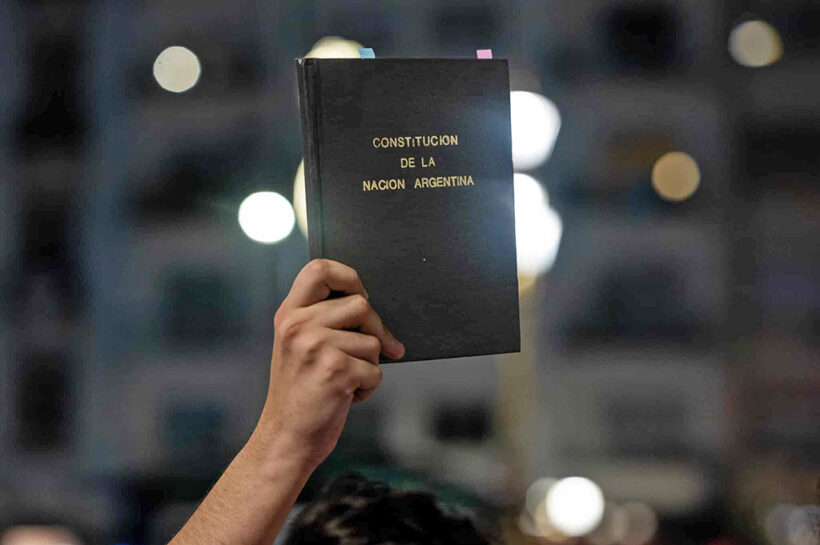Despite the judicial fair and the government’s political pushes, the National Chamber of Labour issued a precautionary measure requested by the CGT that put on hold the labor legislation reform intended within the framework of the Decree of Necessity and Urgency launched by the government. Some of the judges’ arguments:
“Republican forms are not mere rhetoric, but are part of the very essence of the system”.
“It cannot be maintained, in any way, that the Executive can freely substitute the activity of Congress or that it is not subject to judicial control”.
The full ruling can be downloaded here. The government announced that it would appeal. The national strike called by the CGT for 24 January remains firm.
The Chamber of Labour states: “A precautionary measure suspending the applicability of the provisions of Title IV Labour of the Decree of Necessity and Urgency n.º 70/23 until a final judgment on the merits of the case is issued”. The ruling had two votes in favor (José Alejandro Sudera and Andrea García Vior) against one (Dora González). González’s argument was that the case should be heard by the Federal Administrative Chamber, as the government, through the Treasury prosecutor and architect of an important part of this move, Rodolfo Barra, is encouraging.
No need, no urgency
The judges of the Chamber stated that there is no need or urgency in the matter of the decree that justifies “evading the due intervention of the Legislative Branch about the substantive legislation”.
In granting the appeal, the judges reported that “there is no objective evidence of the ‘need’ to adopt such numerous measures and that, although this could – hypothetically – be justified by generic references to ‘a proven fact’, what is certain and legally relevant is that there is no evidence of what is alleged to constitute reasons of ‘urgency’ to avoid the due intervention of the Legislative Power about substantive legislation”.
The judges added that “it is not explained how the proposed reforms if applied immediately and outside the normal procedure for the passing of laws, could remedy the situation regarding the generation of formal employment, especially when the decree itself recognizes that it has been stagnant for 12 years, which prevents – in principle – considering the irruption of some sudden, unforeseeable or extremely ‘exceptional’ circumstance”.
Alberdi and despotism
Judge Alejandro Sudera recalls the following statement in a Supreme Court ruling: “The principle that organizes the functioning of the statute of power is the division of functions and reciprocal control, a scheme that has not been modified by the constitutional reform of 1994. Thus, the National Congress has the legislative function, the Executive has the regulation and the Judiciary issues sentences, with the eminent attribution of exercising control over the constitutionality of legal norms. From this perspective, it cannot be argued, in any way, that the Executive Branch can freely substitute the activity of the Congress or that it is not subject to judicial control”.
He recalls Juan Bautista Alberdi who did not seem to say the things the current president maintains: “The worst of despotism is not its harshness, but its inconsistency, and only the Constitution is immutable. Give the executive all the power possible, but give it to it using a constitution”.
The injunction suspends the changes that the government intended to impose with the DNU published on 21 December, which had been in force since last Friday. Thus, the probationary periods of eight months instead of three, the reduction of pregnancy leave, the adjustment of severance pay, and the virtual elimination of the right to strike are no longer in force, among other objectives still in force in the executive branch.










